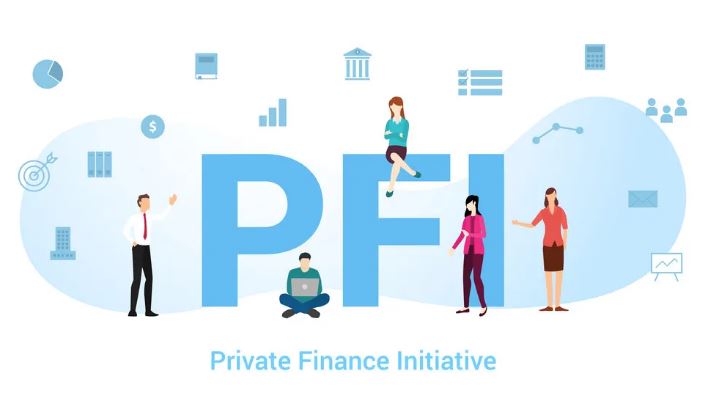Do Private Finance Initiatives Provide Value For Money In Public Sector Projects In The Long Term? (2014)
Public Sector Projects and Private Finance Initiatives Dissertation – The fifteen years have seen an intense shift in the way which public sector facilities are procured and funded. The introduction of Private Finance Initiative (PFI) in the early 1990’s was seen as a way of providing infrastructure and services to the public sector with the private sector securing the finance for the capital investment. As the public sector struggled to deliver projects on time, within cost and quality, PFIs were brought about to change that by designing, building, financing and operating (DBFO) schemes for the public sector. The aim of introducing PFI schemes was to achieve closer partnership between the public and private sectors at both central and government levels.
An important principle from the scheme and an incentive for the public sector was that a substantial part of the risk in the development of new projects ultimately rested with the private sector. The launch of PFI schemes in the UK has generated a great deal of debate surrounding its merits in terms of Value for Money (VFM), quality, transfer of risks and affordability gap. However it has been argued that PFIs are often compared with conventional procurement methods with critics failing to take into account that the objectives of PFIs do not set out to achieve the same ends as oppose to conventional routes.
This dissertation seeks to evaluate if PFIs are providing VFM in hospital projects by examining the claimed rationale by the government of lower costs through risk transfer and greater efficiency. However the findings will be subjective as a true evaluation cannot be determined; as this is only possible once the schemes have come to the end of the contractual period which will not be known for many years. As there is limited evaluative work on the impact of PFI projects which is supported by the Audit commission stating ‘there is little about what PFI is delivering, this paper intends to undertake an investigation into the issues and complexities surrounding the PFI in the NHS from inception to operation.
The aim of this dissertation was to establish if PFIs provides value for money in public sector projects and if PFI projects are proving to be more beneficial in the long term. By critically analysing the literature available on PFIs and questioning employees about their experiences of PFIs, this study aims to;
- Review the current literature on PFI NHS projects and assess if PFI schemes are the most cost effective means of procuring public infrastructure.
- Establish if PFIs have a positive or negative effect on risk transfer.
- Establish the advantages and disadvantages of PFI projects to the end user.
- 20,000 words – 62 pages in length
- Excellent use of literature
- Good analysis of the subject area
- Well written throughout
- Ideal for construction management students
1 – Introduction
Rationale for study
Hypothesis
Dissertation Aims and Objectives
2 – Dissertation Structure
The origins of PFI schemes
Examining the benefits of PFI
Do PFI schemes provide VFM? What are the drawbacks?
The impact of PFI projects in NHS hospital procurement
Semi structured interview
Analysing the results
3 – Literature Review: The origins of PFI projects
What is a PFI?
The development of PFI
The characteristics of a PFI
Role of the NAO
Uncertainty of the risk transfer
The transfer of employment conditions
4 – Examining the Benefits of PFI
The claimed rationale for PFI
PFI aims
Benefits of a PFI
Financial Benefits
Flexibility
Principle factors in creating VFM
Risk
5 – Do PFI schemes provide VFM? What are the drawbacks?
PFI problems
Cost of borrowing
Risk in PFI
The nature of risks
Risk transfer appraisal
Public Sector Comparator (PSC)
Criticism of the PSC
Affordability risk
Competition
6 – The impact of PFI projects in NHS hospital procurement
The NHS and PFIs
Criticism of PFI hospitals
Bed reductions
7 – Research Methodology
Statement of research aim
Methods of data collection
The deductive and inductive approach
Research strategies
In-depth semi structured interviews
Analysing qualitative data
8 – Research Analysis
Method of analysis
Research sample
Interview analysis
9 – Conclusion and Recommendations
Literature Review
Research objectives
Research Summary
Limitations
Recommendations for future research
References

